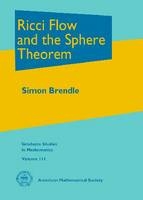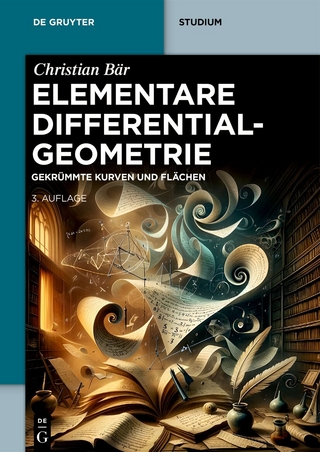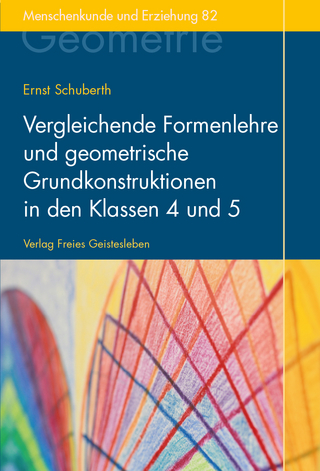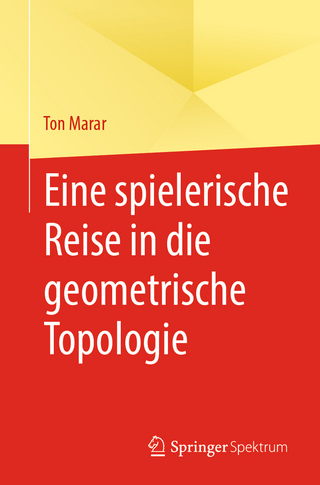
Ricci Flow and the Sphere Theorem
Seiten
2010
American Mathematical Society (Verlag)
978-0-8218-4938-5 (ISBN)
American Mathematical Society (Verlag)
978-0-8218-4938-5 (ISBN)
Deals with the Ricci flow, and the convergence theory for the Ricci flow. This title focuses on preserved curvature conditions, such as positive isotropic curvature. It is suitable for graduate students and researchers.
In 1982, R. Hamilton introduced a nonlinear evolution equation for Riemannian metrics with the aim of finding canonical metrics on manifolds. This evolution equation is known as the Ricci flow, and it has since been used widely and with great success, most notably in Perelman's solution of the Poincare conjecture. Furthermore, various convergence theorems have been established. This book provides a concise introduction to the subject as well as a comprehensive account of the convergence theory for the Ricci flow. The proofs rely mostly on maximum principle arguments. Special emphasis is placed on preserved curvature conditions, such as positive isotropic curvature. One of the major consequences of this theory is the Differentiable Sphere Theorem: a compact Riemannian manifold whose sectional curvatures all lie in the interval (1,4] is diffeomorphic to a spherical space form. This question has a long history, dating back to a seminal paper by H. E. Rauch in 1951, and it was resolved in 2007 by the author and Richard Schoen. This text originated from graduate courses given at ETH Zurich and Stanford University, and is directed at graduate students and researchers. The reader is assumed to be familiar with basic Riemannian geometry, but no previous knowledge of Ricci flow is required.
In 1982, R. Hamilton introduced a nonlinear evolution equation for Riemannian metrics with the aim of finding canonical metrics on manifolds. This evolution equation is known as the Ricci flow, and it has since been used widely and with great success, most notably in Perelman's solution of the Poincare conjecture. Furthermore, various convergence theorems have been established. This book provides a concise introduction to the subject as well as a comprehensive account of the convergence theory for the Ricci flow. The proofs rely mostly on maximum principle arguments. Special emphasis is placed on preserved curvature conditions, such as positive isotropic curvature. One of the major consequences of this theory is the Differentiable Sphere Theorem: a compact Riemannian manifold whose sectional curvatures all lie in the interval (1,4] is diffeomorphic to a spherical space form. This question has a long history, dating back to a seminal paper by H. E. Rauch in 1951, and it was resolved in 2007 by the author and Richard Schoen. This text originated from graduate courses given at ETH Zurich and Stanford University, and is directed at graduate students and researchers. The reader is assumed to be familiar with basic Riemannian geometry, but no previous knowledge of Ricci flow is required.
| Erscheint lt. Verlag | 28.2.2010 |
|---|---|
| Reihe/Serie | Graduate Studies in Mathematics |
| Verlagsort | Providence |
| Sprache | englisch |
| Gewicht | 480 g |
| Themenwelt | Mathematik / Informatik ► Mathematik ► Geometrie / Topologie |
| ISBN-10 | 0-8218-4938-7 / 0821849387 |
| ISBN-13 | 978-0-8218-4938-5 / 9780821849385 |
| Zustand | Neuware |
| Haben Sie eine Frage zum Produkt? |
Mehr entdecken
aus dem Bereich
aus dem Bereich
Gekrümmte Kurven und Flächen
Buch | Softcover (2024)
De Gruyter (Verlag)
49,95 €
Buch | Hardcover (2022)
Freies Geistesleben (Verlag)
24,00 €
Buch | Softcover (2024)
Springer International Publishing (Verlag)
89,99 €


